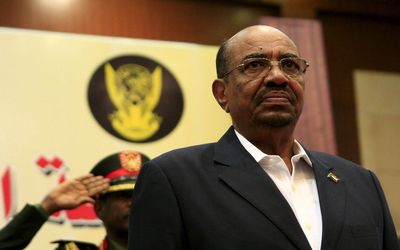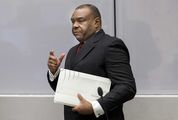African walkout from ICC runs contrary to obligations
by Paul Hoffman,
2016-01-04 06:06:21.0
IT WAS unseasonably hot in Midrand when the African National Congress (ANC) held its national general council meeting in October last year. Perhaps the heat explains its lamentable and ill-considered resolution to withdraw SA from the International Criminal Court (ICC) and orchestrate an Africa-wide walkout.
The decision is reminiscent of one taken in Polokwane in 2007, when the party decided to "urgently dissolve" the Scorpions and replace the independent corruption-busting unit with the Hawks, a police unit to be focused on "priority crimes".
By 2009, the Scorpions were history and the Hawks had been established to succeed them, yet according to official records, in their first full year of operation, the Hawks reduced the number of new investigations 85%, and the value of contraband seized dropped a whopping 99.1%. Even the raw numbers make for sobering reading: goods seized in 2007-08 were valued at more than R4bn; in 2008-09 just R35m.
Last year alone, the first head of the Hawks (who is supposed to enjoy job security) was hounded out of office, only to be replaced by a police officer who has a high court adverse credibility and integrity finding against him. Exacerbating matters, the police commissioner faces a board of inquiry into her fitness for office and the head of the Independent Police Investigative Directorate, Robert McBride, is suspended on a basis that is highly questionable.
If the ANC’s resolution to leave the ICC is acted on by government, similarly deleterious consequences can be expected to flow from its implementation, because lawlessness and impunity on the African continent will be allowed to prevail over the efforts of the ICC to ensure accountability and the rule of law. The decision to disband the Scorpions was taken to protect President Jacob Zuma, other highly placed ANC members and their friends; the decision on the ICC relates to the ANC’s desire to protect the likes of Sudanese President Omar al-Bashir, who faces charges of genocide and various other crimes against humanity. Warrants for his arrest issued in March 2009 and July 2010 remain unserved.
He has successfully avoided arrest — with the help of the South African authorities, who spirited him out of the country six months ago after the high court had prohibited his departure. The court declared that the government’s conduct in failing to arrest Bashir was inconsistent with its constitutional obligations and that, accordingly, it was invalid.
These developments are perplexing. In July 2009, the Department of International Relations, through its director-general Ayanda Ntsaluba, said that while SA had reservations about the case against Bashir, he would be arrested if he entered South African territory. Ntsaluba emphasised that the government would not act outside the framework of the law, which in this instance is clear. SA was one of the first countries to ratify the Rome Statute, the enabling statute of the ICC, and the Implementation of the Rome Statute of the International Criminal Court Act 27 of 2002, is one of the strongest such laws in the world.
The Constitution itself makes it pellucid that where an international treaty has been enacted into law by national legislation (such as Act 27 of 2002) it is binding and enforceable law.
The purpose of creating the ICC, shared by the 22 African states that were among the founding nations to ratify the Rome Statute, is the creation of an accountability mechanism in respect of crimes against humanity, war crimes and genocide. Most states in Africa are now parties to the ICC, and their will to remain so was tested at the African ICC state parties summit held in Addis Ababa in June 2009. Proposals made at the summit relating to withholding co-operation with the ICC or even withdrawing from it did not find traction. A month later, an Africa-wide grouping of 160 civil society organisations endorsed a call for African states to commit themselves to the enforcement of arrest warrants against Bashir.
These historical facts point to the acceptance of the view that impunity for the type of crimes Bashir is accused of perpetrating is no longer acceptable in Africa. It is only elites on the continent who have reason to fear the proper implementation of the rule of law and are suggesting that there is "unity of purpose" in rejecting ICC indictments of African leaders.
In these circumstances, the ANC may well encounter some difficulty in orchestrating and leading an Africa-wide walkout from the ICC. It may also be putting the government in a situation in which it will find itself in open conflict with the law and the Constitution, which was put in place largely as a result of the efforts of the ANC. This is a far cry from the values of the Freedom Charter and the role SA has played in bringing the rule of law to the continent. It is also a tacit disavowal of the human rights culture fostered by our Bill of Rights. Rights to life, dignity, freedom from torture and to bodily and psychological integrity are guaranteed in the Constitution. The state is obliged to respect, protect, promote and fulfil these rights.
There is in any event no quick and easy exit from the ICC obligations. As with the disbandment of the Scorpions, these things take time. Laws will have to be repealed through parliamentary processes; a public participation process is necessary and it is unavoidably the legal position that until SA formally withdraws from the Rome Statute, we must continue to comply fully with our international obligations, as well as our domestic law obligation to co-operate with the ICC. The ANC also needs to note that the legal obligations remain in force for a year after withdrawal from the Rome Statute.
A continent-wide walkout from the ICC would also be inconsistent with the African Union’s (AU) rejection of impunity, as recorded in article 4(o) of its constitution: "The union shall function in accordance with the following principles: … (o) respect for the sanctity of life, condemnation and rejection of impunity and political assassination, acts of terrorism and subversive activities". If the ANC wants to "walk the talk" of article 4, then there is no point in leaving the ICC.
If not, consideration will have to be given to leaving the AU as well and abandoning the supremacy of the rule of law that is stipulated in our Constitution.
• Hoffman is an advocate and director of Accountability Now

Sudanese President Omar al-Bashir. Picture: REUTERS/MOHAMED NURELDIN ABDALLAH
IT WAS unseasonably hot in Midrand when the African National Congress (ANC) held its national general council meeting in October last year. Perhaps the heat explains its lamentable and ill-considered resolution to withdraw SA from the International Criminal Court (ICC) and orchestrate an Africa-wide walkout.
The decision is reminiscent of one taken in Polokwane in 2007, when the party decided to "urgently dissolve" the Scorpions and replace the independent corruption-busting unit with the Hawks, a police unit to be focused on "priority crimes".
By 2009, the Scorpions were history and the Hawks had been established to succeed them, yet according to official records, in their first full year of operation, the Hawks reduced the number of new investigations 85%, and the value of contraband seized dropped a whopping 99.1%. Even the raw numbers make for sobering reading: goods seized in 2007-08 were valued at more than R4bn; in 2008-09 just R35m.
Last year alone, the first head of the Hawks (who is supposed to enjoy job security) was hounded out of office, only to be replaced by a police officer who has a high court adverse credibility and integrity finding against him. Exacerbating matters, the police commissioner faces a board of inquiry into her fitness for office and the head of the Independent Police Investigative Directorate, Robert McBride, is suspended on a basis that is highly questionable.
If the ANC’s resolution to leave the ICC is acted on by government, similarly deleterious consequences can be expected to flow from its implementation, because lawlessness and impunity on the African continent will be allowed to prevail over the efforts of the ICC to ensure accountability and the rule of law. The decision to disband the Scorpions was taken to protect President Jacob Zuma, other highly placed ANC members and their friends; the decision on the ICC relates to the ANC’s desire to protect the likes of Sudanese President Omar al-Bashir, who faces charges of genocide and various other crimes against humanity. Warrants for his arrest issued in March 2009 and July 2010 remain unserved.
He has successfully avoided arrest — with the help of the South African authorities, who spirited him out of the country six months ago after the high court had prohibited his departure. The court declared that the government’s conduct in failing to arrest Bashir was inconsistent with its constitutional obligations and that, accordingly, it was invalid.
These developments are perplexing. In July 2009, the Department of International Relations, through its director-general Ayanda Ntsaluba, said that while SA had reservations about the case against Bashir, he would be arrested if he entered South African territory. Ntsaluba emphasised that the government would not act outside the framework of the law, which in this instance is clear. SA was one of the first countries to ratify the Rome Statute, the enabling statute of the ICC, and the Implementation of the Rome Statute of the International Criminal Court Act 27 of 2002, is one of the strongest such laws in the world.
The Constitution itself makes it pellucid that where an international treaty has been enacted into law by national legislation (such as Act 27 of 2002) it is binding and enforceable law.
The purpose of creating the ICC, shared by the 22 African states that were among the founding nations to ratify the Rome Statute, is the creation of an accountability mechanism in respect of crimes against humanity, war crimes and genocide. Most states in Africa are now parties to the ICC, and their will to remain so was tested at the African ICC state parties summit held in Addis Ababa in June 2009. Proposals made at the summit relating to withholding co-operation with the ICC or even withdrawing from it did not find traction. A month later, an Africa-wide grouping of 160 civil society organisations endorsed a call for African states to commit themselves to the enforcement of arrest warrants against Bashir.
These historical facts point to the acceptance of the view that impunity for the type of crimes Bashir is accused of perpetrating is no longer acceptable in Africa. It is only elites on the continent who have reason to fear the proper implementation of the rule of law and are suggesting that there is "unity of purpose" in rejecting ICC indictments of African leaders.
In these circumstances, the ANC may well encounter some difficulty in orchestrating and leading an Africa-wide walkout from the ICC. It may also be putting the government in a situation in which it will find itself in open conflict with the law and the Constitution, which was put in place largely as a result of the efforts of the ANC. This is a far cry from the values of the Freedom Charter and the role SA has played in bringing the rule of law to the continent. It is also a tacit disavowal of the human rights culture fostered by our Bill of Rights. Rights to life, dignity, freedom from torture and to bodily and psychological integrity are guaranteed in the Constitution. The state is obliged to respect, protect, promote and fulfil these rights.
There is in any event no quick and easy exit from the ICC obligations. As with the disbandment of the Scorpions, these things take time. Laws will have to be repealed through parliamentary processes; a public participation process is necessary and it is unavoidably the legal position that until SA formally withdraws from the Rome Statute, we must continue to comply fully with our international obligations, as well as our domestic law obligation to co-operate with the ICC. The ANC also needs to note that the legal obligations remain in force for a year after withdrawal from the Rome Statute.
A continent-wide walkout from the ICC would also be inconsistent with the African Union’s (AU) rejection of impunity, as recorded in article 4(o) of its constitution: "The union shall function in accordance with the following principles: … (o) respect for the sanctity of life, condemnation and rejection of impunity and political assassination, acts of terrorism and subversive activities". If the ANC wants to "walk the talk" of article 4, then there is no point in leaving the ICC.
If not, consideration will have to be given to leaving the AU as well and abandoning the supremacy of the rule of law that is stipulated in our Constitution.
• Hoffman is an advocate and director of Accountability Now























Change: 1.19%
Change: 1.36%
Change: 2.19%
Change: 1.49%
Change: -0.77%
Data supplied by Profile Data
Change: -0.08%
Change: 0.12%
Change: 1.19%
Change: 0.00%
Change: 0.10%
Data supplied by Profile Data
Change: 0.32%
Change: 0.36%
Change: 0.35%
Change: 0.22%
Change: 0.23%
Data supplied by Profile Data
Change: 0.02%
Change: -0.51%
Change: -0.19%
Change: -0.17%
Change: -0.15%
Data supplied by Profile Data